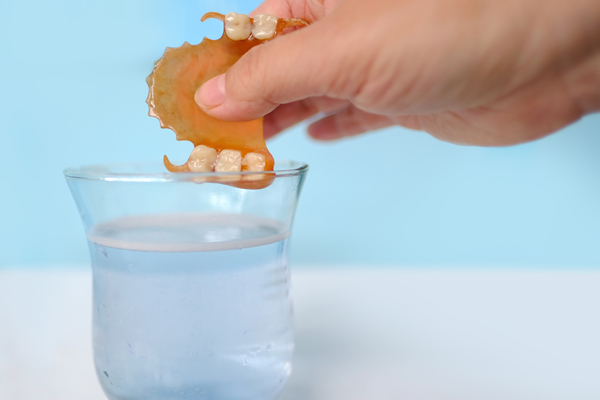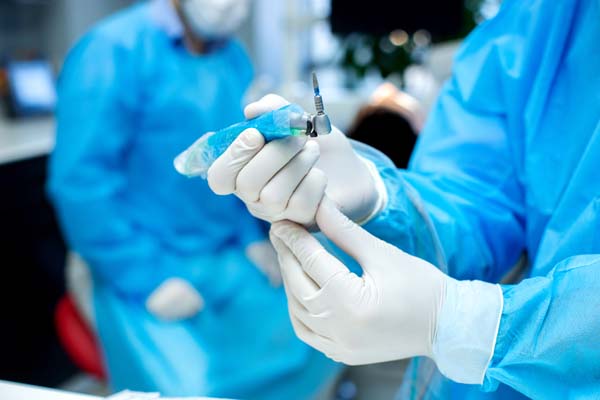Ask a Family Dentist: Are Sugar Substitutes Good for Teeth?

Any family dentist will warn you of the dangers of sugar for teeth. Too much sugar can bring a host of issues for your general health in addition to problems in oral health. For your mouth, sugar can mean tooth decay, cavities and even disease.
Sugar substitutes flood the market in an effort to fight the common health problems caused by sugar, but are these any better for your teeth? Here, a family dentist weighs in on the effects of sugar substitutes on tooth health.
Sugar’s effect on teeth
Excess sugar can be harmful to teeth. Consuming too much sugar without precaution can lead to enamel erosion, cavities or tooth decay.
How sugar harms teeth
Mouths are filled with bacteria. While many bacteria are useful and essential to wellbeing, there are some bacteria present that can be bad for oral health. Sugar can exacerbate the issue because the bacteria are drawn to sugars. According to the ADA, bacteria will break down sugar and produce acid, which is harmful to tooth enamel.
How sugar substitutes affect teeth
While sugar can be harmful to teeth, certain sugar substitutes provide many benefits for oral health. However, substitutes like honey or maple syrup will have the same effects as sugar, so use caution when choosing a sugar substitute.
Antibacterial properties
Whereas sugar attracts bad bacteria, some sugar substitutes, such as polyols, have antibacterial properties. According to The New York Times, many polyols cannot be broken down by bacteria like sugar can be. As a result, the bacteria cannot produce the acid that leads to the wear and tear of tooth enamel.
However, a study in the British Dental Journal found that if polyol-containing products also contain acidic flavoring, there is still a risk of enamel erosion and tooth decay. Consume with care and in moderation.
General health
Sugar substitutes, particularly artificial sweeteners, have a questionable reputation when it comes to overall health. For instance, although cyclamate, a type of artificial sweetener, has been linked to bladder cancer, the connection of other artificial sweeteners is not definitive. The National Cancer Institute says that there is not clear evidence that many sweeteners are linked to cancer in humans. There are multiple studies that have found a connection between artificial sweeteners like saccharin and aspartame to cancer in rats, but mechanistic studies have found this applies only to rats, not humans.
Be sure to talk to your doctor and family dentist to choose the best sweetener option for you.
Conclusion
Both sugar and sugar substitutes have their own downfalls, but sugar substitutes can have various benefits for oral health. Either way, consume added sweeteners with moderation and stick to a healthy diet of whole foods for the best oral and overall health. If you have a sweet tooth that you just need to satisfy, be sure to get advice from your family dentist on the best sugar substitute for you.
Request an appointment here: https://www.queensfamilydental.com or call Queens Family Dental at (718) 954-9425 for an appointment in our Flushing office.
Check out what others are saying about our dental services on Yelp: Family Dentist.
Recent Posts
Partial dentures are a great tooth replacement option for missing teeth. They are easier on the mouth than full dentures but not as costly as dental implants. Those that wear partial dentures can expect an easier eating experience, better speaking and an aesthetically pleasing smile. However, with partial dentures comes discipline, meaning the wearer must…
Implant dentistry procedures have the highest rate of success among all the options available for replacing missing teeth. The process of replacing a single missing tooth is straightforward and involves using an implant as artificial tooth roots and supporting it with a dental crown. Continue reading to learn how the process works.Regardless of the number…
Orthodontic treatment is known to correct misalignments of the jaw and teeth. Additionally, general dentists offer orthodontics to patients who have gaps in their teeth or severe crowding. One of the most popular methods of treatment is called Invisalign®, which can be used in adults, as well as teenagers who have all of their teeth.…
Anyone considering dental veneers should understand the details of how they work to help determine if they are candidates. These thin, shell-like pieces are a cosmetic dentistry treatment that enhances the overall appearance of the teeth. Here are the various ways that general dentists utilize veneers for their patients.Veneers are thin porcelain shells that a…


